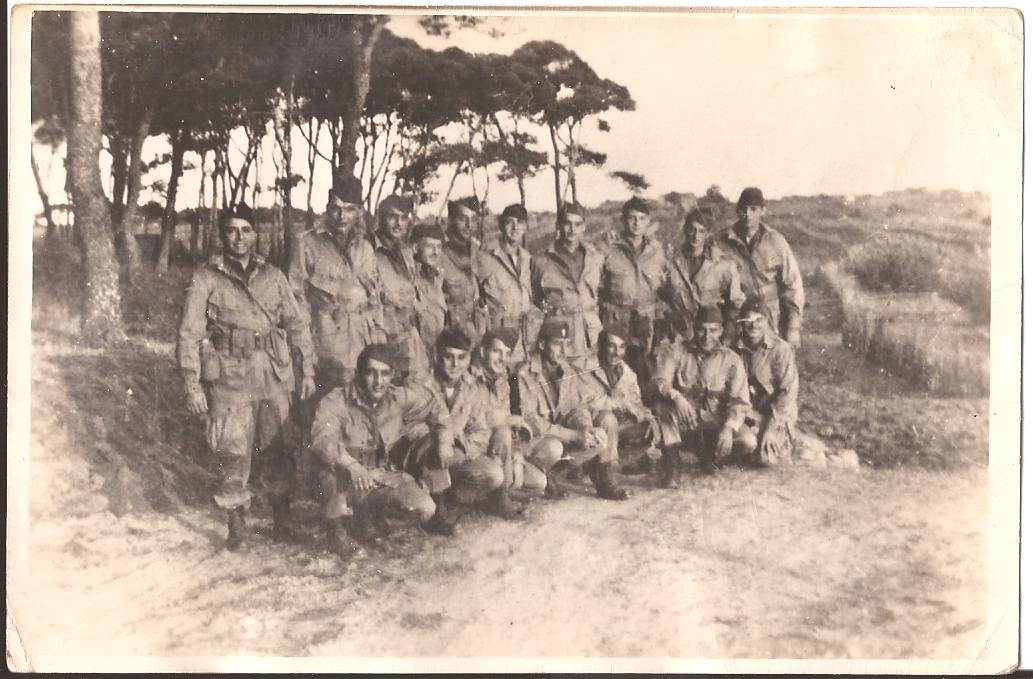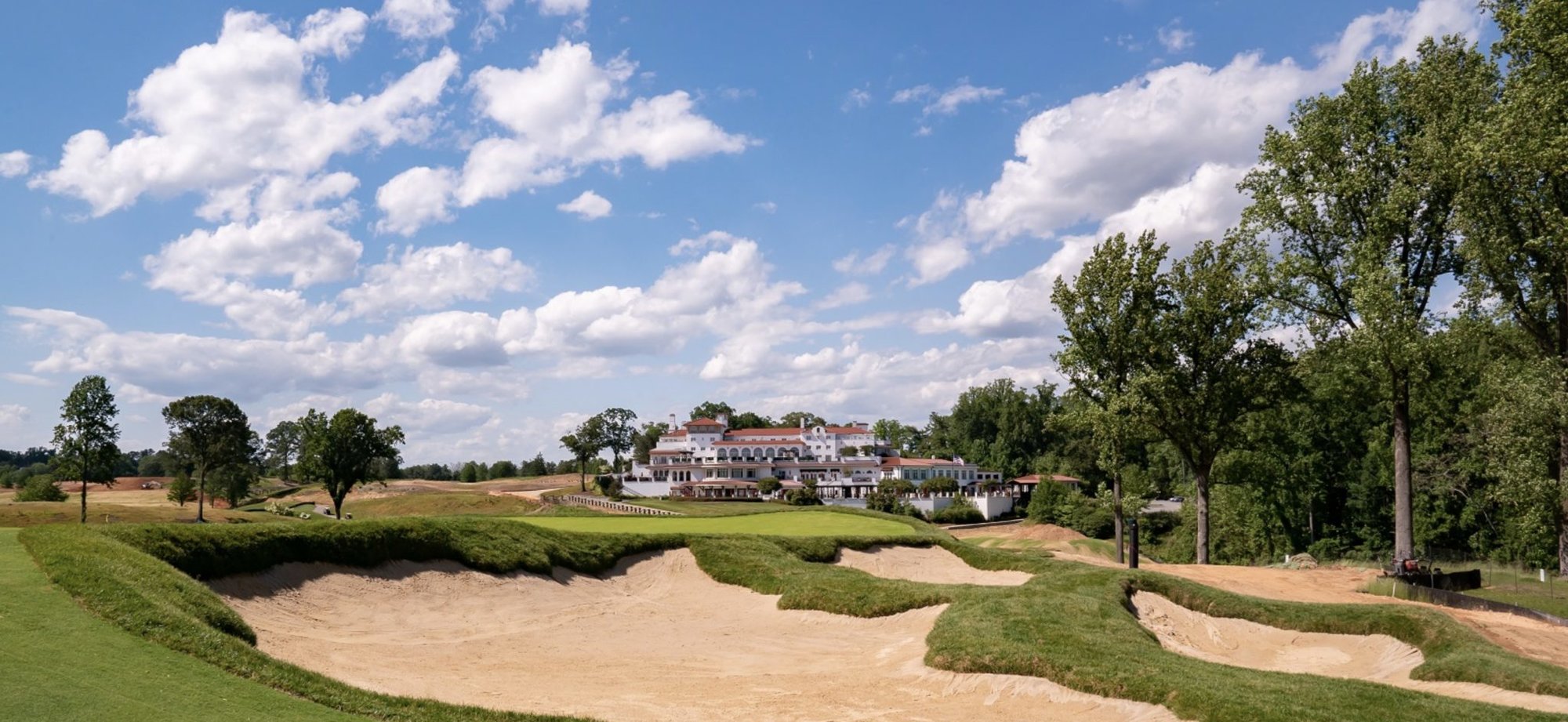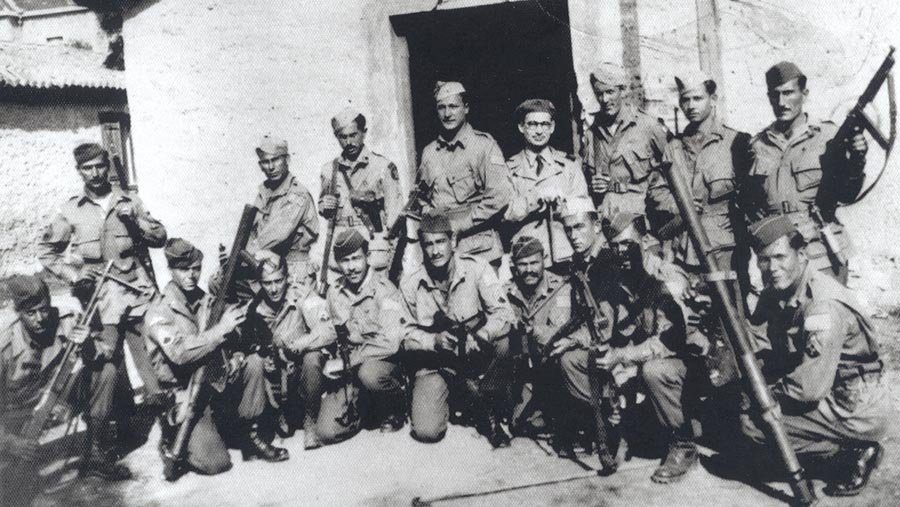
“Donovan’s Devils” from the Italian Operational Group. Photo courtesy of The OSS Society.
“Fore!” is what a golfer typically yells to warn other golfers in the area of an incoming slice. In the midst of World War II there were no drives, chips, or putts at the Congressional Country Club located in Bethesda, Maryland, about 12 miles from Washington. Instead, the 400-acre golf course was leased by the US government for the training of commandos, saboteurs, and spies from the then-secret Office of Strategic Services (OSS), the forerunner to the CIA.
The driving range was transformed into a firing range. The sandy bunkers were used for grenade practice. The water hazards or nearby creeks tested the trainees’ aptitude for imaginative innovation. They would be tasked with building a stone bridge to safely cross, then instructed on the best ways to destroy it with plastic explosives. The greens were ideal targets for mortar practice, the fairways on the 17th and 18th holes simulated minefields, and the wooded areas between holes had commandos sneaking through them on nighttime exercises. On more than one occasion, the milkman was a target for a snatch-and-grab raid.

“It was malice in wonderland,” recalled OSS veteran Alex MacDonald. “It was the 10 Commandments in reverse: lie and steal, kill, maim, spy.”
The soldiers and civilians recruited into the OSS trained in groups of 200 to 400 between 1943 and 1945, and more than 2,500 OSS recruits would go through the program at the Congressional Country Club. The officers lived in the clubhouse, the ballroom became a classroom, and the dining room served as the mess hall. They were taught tactics, espionage, demolitions, sabotage, parachuting, and weapons handling. Some of the residents came to the Congressional only to complete a three-day crash course before being posted on an overseas assignment. This was the case for Betty McIntosh, who later ran black propaganda operations in China during the war.

“It was serious work, but I had fun,” McIntosh remembered. “We fired guns. We burrowed into sand traps for cover. I learned to throw grenades on one of the fairways.”
Following World War II, the Congressional returned to its traditional self, swapping out the rifles and bullets for golf clubs and golf balls. Beginning in 2005, the OSS Society hosted OSS veterans and their families at their old training ground. While they reminisced and shared stories about their wartime service, OSS Society president Charles Pinck was quick to remind them not to blow anything up.
“Back then, it would have been hard just finding the greens,” said Al Johnson, an OSS veteran who served in North Africa, France, and China. “And we left some divots that no golfer could have gotten out of in less than three shots.”

Matt Fratus is a history staff writer for Coffee or Die. He prides himself on uncovering the most fascinating tales of history by sharing them through any means of engaging storytelling. He writes for his micro-blog @LateNightHistory on Instagram, where he shares the story behind the image. He is also the host of the Late Night History podcast. When not writing about history, Matt enjoys volunteering for One More Wave and rooting for Boston sports teams.
BRCC and Bad Moon Print Press team up for an exclusive, limited-edition T-shirt design!
BRCC partners with Team Room Design for an exclusive T-shirt release!
Thirty Seconds Out has partnered with BRCC for an exclusive shirt design invoking the God of Winter.
Lucas O'Hara of Grizzly Forge has teamed up with BRCC for a badass, exclusive Shirt Club T-shirt design featuring his most popular knife and tiomahawk.
Coffee or Die sits down with one of the graphic designers behind Black Rifle Coffee's signature look and vibe.
Biden will award the Medal of Honor to a Vietnam War Army helicopter pilot who risked his life to save a reconnaissance team from almost certain death.
Ever wonder how much Jack Mandaville would f*ck sh*t up if he went back in time? The American Revolution didn't even see him coming.
A nearly 200-year-old West Point time capsule that at first appeared to yield little more than dust contains hidden treasure, the US Military Academy said.












